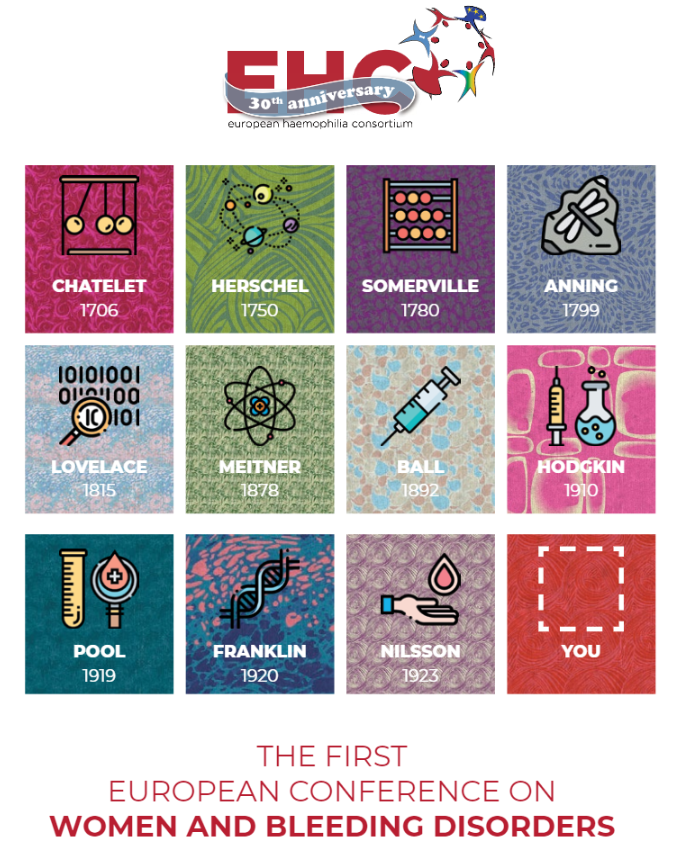The European Haemophilia Consortium’s (EHC) inaugural Conference on Women and Bleeding Disorders took place in Frankfurt, Germany, from Friday 24 to Sunday 26 May. It brought together close to 150 delegates, including patient representatives from around 30 countries.
The conference started on Friday with a “setting the scene” opening session on bleeding disorders in women and girls, during which, the EHC presented the results of their recent survey on Women and Bleeding Disorders in Europe. The programme continued with a session on understanding transmission and genetic testing of inherited bleeding disorders, with different presentations on inheritance and carrier detection on haemophilia, von Willebrand disease, and rare bleeding disorders.
The Saturday programme featured a session on how to prepare for menarche and manage monthly menses, the most challenging issue women with bleeding disorders face. It was an insightful panel discussion, where healthcare professionals and patients conversed on developing a treatment and management plan for heavy periods, including treatment options and how to approach and prepare for adolescence. The day closed with a screening of the film “Women and Bleeding Disorders” from director Goran Kapetanović. The film shed some much-needed light on the lives of these often neglected but valued members of the bleeding disorders community, who appeared on camera to tell their story in a very personal way.
The final day of the conference began with a session on “Everyday issues”, touching on the psychosocial issues that bleeding disorders can provoke, as well as their impact on quality of life. This was followed by two excellent breakout sessions: the first on fertility and pregnancy in and the management of labour, delivery and neonatal care in women affected by bleeding disorders; and the other on building peer-to-peer support through the haemophilia treatment centres and national patient organisations (NMOs).
The sessions and dedicated presentations of this first European Conference on Women and Bleeding Disorders sparked fruitful discussions and helped shed light on the lived experiences of women with bleeding disorders across Europe. The conference was also an important forum for bringing together healthcare professionals and patient representatives to share knowledge and insights.
The EHC Conference was also an opportunity for the members of EAHAD’s Women and Bleeding Disorders Working Group to meet and discuss their upcoming plans, including publishing a survey on knowledge gaps in the clinical management of women-specific symptoms of inherited bleeding disorders, building a network of healthcare professionals interested in this topic, and producing educational materials.

